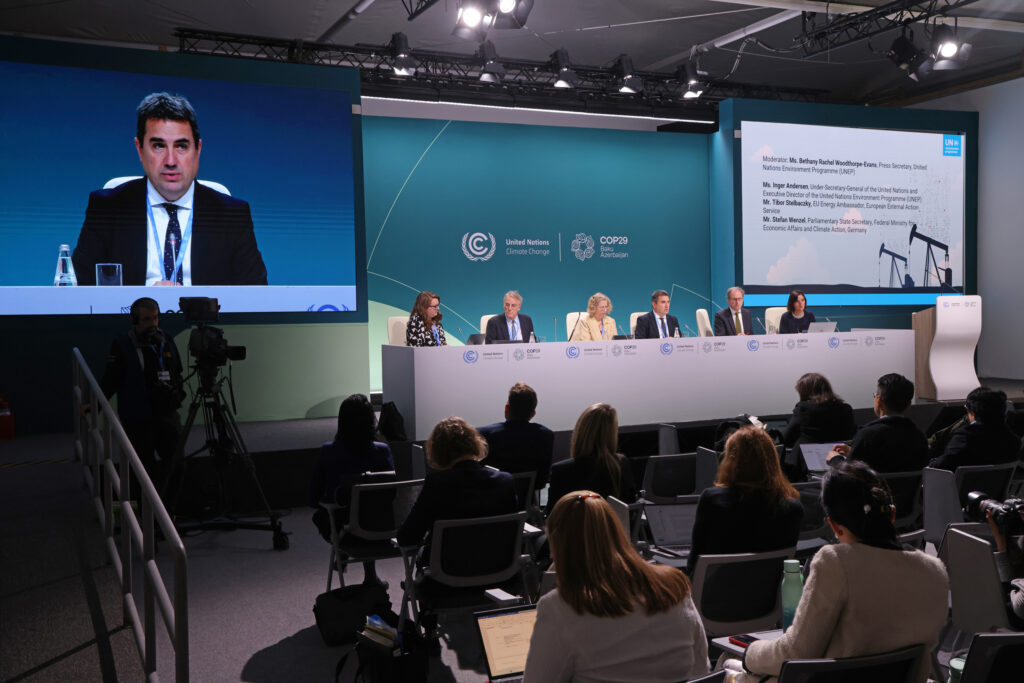The “sprint to cut climate super pollutants” may soon decelerate at COP29. Leading climate diplomats from the U.S., China, and Azerbaijan convened in Baku for discussions on reducing methane and other potent greenhouse gases.
Efforts to curb these emissions are under threat as President-elect Donald Trump has indicated plans to exit the Paris climate agreement. The oil industry is urging Trump to repeal emissions regulations.
Methane, a significant component of natural gas, ranks as the second primary driver of climate change after CO2. Rapidly reducing its emissions from sectors like oil, gas, agriculture, and landfills is crucial to mitigating climate change over the short term.
Non-CO2 gases, including methane, nitrous oxide, and fluorinated gases, contribute significantly to current global warming.
“There’s a strong consensus on addressing non-CO2 greenhouse gases,” stated U.S. climate envoy John Podesta at the summit.
As of now, 158 countries support the Global Methane Pledge, initiated by the U.S. and European Commission in 2021.
The EPA implemented regulations last year aimed at reducing methane emissions from the oil and gas industry by 80%.
The U.S. has also finalized an oil and gas Waste Emissions Charge, targeting facilities emitting over 25,000 metric tons of CO2 equivalents annually. Starting in 2024, excessive emissions will incur charges, escalating to $1,500 per metric ton by 2026. The fee first applies to 2024 emissions.
“We can’t halt the progress in methane abatement technology,” Podesta emphasized.
The American Exploration and Production Council is lobbying against the methane fee, as revealed by documents from The Washington Post.
Executives in the oil and gas sector, including those from the American Petroleum Institute, have been approached for campaign support by Trump. Their wish list for the Trump administration includes repealing the methane fee.
This situation persists despite the increasing frequency of climate change-induced disasters. Greenhouse gases pose significant risks, necessitating immediate action to prevent severe consequences. Climate advocates stress that major emitters like the U.S. must maintain momentum in reducing methane pollution.
Durwood Zaelke from the Institute for Governance and Sustainable Development called for a binding global agreement on methane.
Al Gore, co-founder of Climate TRACE, highlighted a rise in global methane emissions despite the pledge, emphasizing the need for action.
China’s special envoy for climate change, Liu Zhenmin, spoke on efforts to monitor and reduce methane from coal mines. China aims to integrate these reductions into its Paris agreement targets by February.
A study in Nature Communications suggests China could cut emissions equivalent to 660 million metric tons of CO2 by 2030, comparable to closing 170 coal-fired plants.
Gore remains optimistic about global reductions, especially with renewable energy’s affordability.
Original Story at insideclimatenews.org
